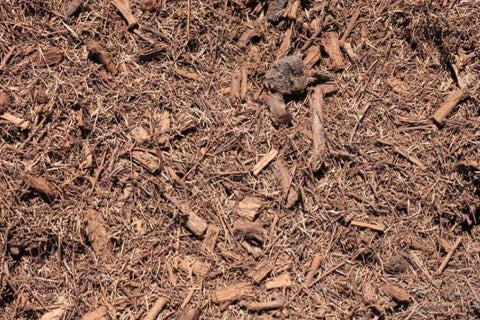Why Should You Mulch Your Garden?

Regular mulching serves loads of purposes in your garden. Basically, mulch is any type of material that is spread or laid over the surface of the soil as a covering.
It is used to retain moisture in the soil, suppress weeds, keep the soil cool and make the garden bed look more attractive. Organic mulches also help improve the soil’s fertility, as they decompose.
Examples of organic mulches include bark (shredded or chipped), compost, composted manure, grass clippings, newspaper, shredded leaves and straw.
Organic mulch will decompose and have to be replaced, however in the process it will also improve your soil’s fertility and, of course, its organic content. Generally speaking, the dryer and woodier the mulch, the slower it will decompose and the less nutrients it leach into the soil.
It pays to know the origin of manure, compost and straw, since these materials can contain viable weed seeds. The last thing you want is to spread mulch that is going to start sprouting.
Bark mulches are best used around trees, shrubs and in garden beds where you won’t be doing a lot of digging. Woody mulches don’t mix well into the soil and it can be a time consuming and a hassle to keep moving them aside to make way for new plants.
Compost and composted manure can be used anywhere, as long as they are relatively well composted and weed free. You can use them as a coating of mulch or simply side dress plants with them during the growing season, to insulate and give a boost of slow released nutrients.
Grass clippings are a bit of a mixed bag, and are best suited to remote areas of your garden where you basically want to suppress weeds.
Grass clippings, like most green plant debris with a high water content, decompose very rapidly and in the process they can become slimy, with an unpleasant odour - so use them carefully. Grass clippings also tend to mat down and not allow water to pass through.
Newspaper as mulch is becoming more and more popular. Most newspapers have switched over to organic dyes, especially for their black & white sections. Shredded newspaper has been used for years to keep plant roots moist while shipping.
Layered sheets of newspaper also have great moisture retention abilities and they act like other organic mulches as far as suppressing weeds and controlling soil temperatures. They are also great for smothering existing grass, to quick start a new garden bed.
Shredded leaves are nature’s favourite mulch, and can be used as mulch anywhere. They have the added bonus of being free.
However, some gardeners don’t like the look of leaves in their garden and they definitely aren’t appropriate for formal gardens. But if you spread a layer in the spring, before plants spread out, the leaf mulch tends to blend into the view within a short time. Shredded leaves are perfect for woodland style gardens.
You will need to be aware that unshredded leaves can mat together and repel water, in rainy areas.
Straw is another popular mulch particularly for the vegetable garden. It keeps the soil and soil born diseases from splashing up on lower plant leaves and make paths less muddy. Straw decomposes very slowly and will last the entire growing season. It also makes a nice home for spiders and other beneficial insects, which move in and help keep the pest population in control.
And finally, it’s easy to either rake up or work into the soil when it’s time to plant a new crop or put the vegetable garden to bed.
This should give you a few ideas about what may be useful in your garden, but if you are unsure what you should be using for best results, call in and we can advise you about the most effective type of mulch for your garden project.



















